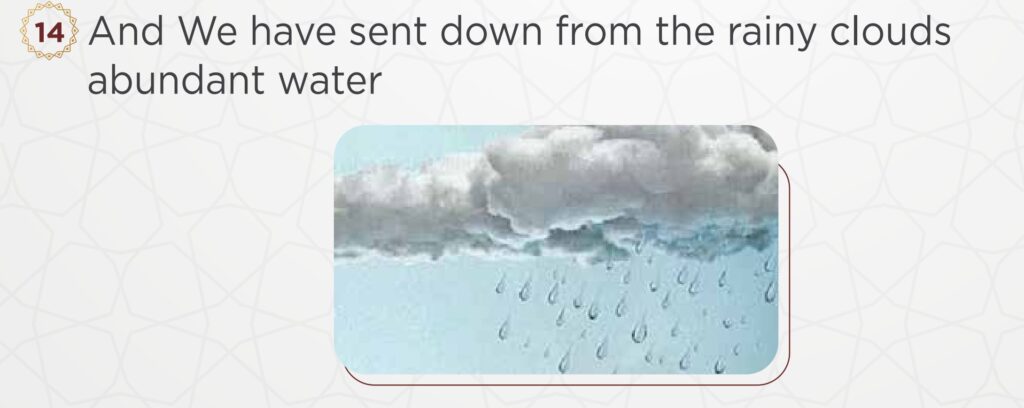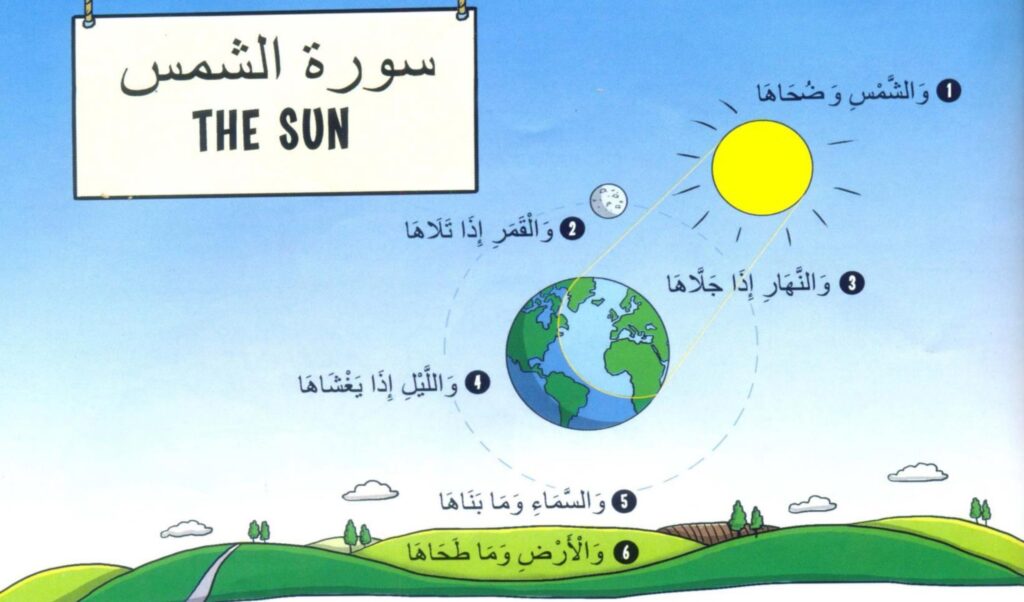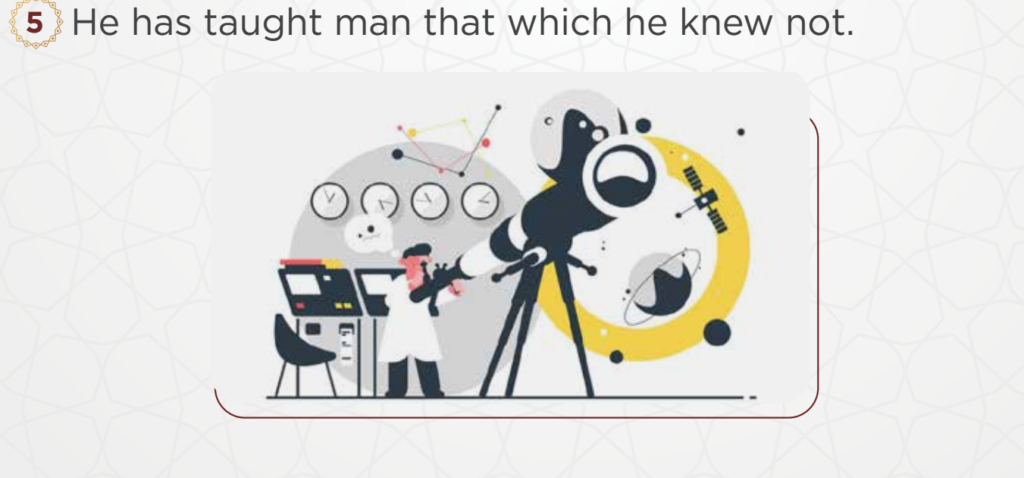The Holy Quran is a religious text that was revealed by Allah (SWT) to the Prophet Muhammad (PBUH). It is considered to be a miracle and a source of guidance for Muslims and believers. The Holy Quran contains many references to science, some of which were not known at the time it was revealed.
The Holy Quran is a holy book that contains many references to scientific concepts and phenomena. These references have been the subject of many studies and debates among scholars and scientists, and their interpretation and relevance continue to be a topic of discussion.
Some of the notable scientific references in the Quran are:
- The description of the creation of the universe. The Quran refers to what we study nowadays “the Big Bang theory”, which is now widely accepted as the most plausible explanation for the origin of the universe. The Holy Quran states that the universe was created from a single point in a massive explosion and that it has been expanding ever since. This description is remarkably similar to the scientific explanation of the Big Bang. Allah says: “And the heaven We constructed with strength, and indeed, We are [its] expander.” Surah Ad-Dharyat
- The Holy Quran contains detailed descriptions of human embryology and development that are remarkably accurate. It describes the formation of the embryo and the stages of fetal development in a manner that is consistent with modern scientific understanding. For example, the Quran describes the formation of bones in the fetus, stating that they are formed first as cartilage and then gradually harden into bone. This description is consistent with modern embryological knowledge.

3. The Holy Quran also contains references to geology and earth science. The Holy Quran describes the formation of mountains, stating that they are like pegs that anchor the earth’s crust and prevent it from shaking. This description is consistent with modern geology, which recognizes that mountains are formed by the movement of tectonic plates.
4. The Holy Quran also describes the water cycle, stating that water evaporates from the earth’s surface, forms clouds, and then falls back to the earth as rain. This description is consistent with modern meteorology and hydrology.

5. The Holy Quran contains references to astronomy and celestial bodies. It refers to the sun, moon, stars, and planets, and their roles in the universe and in human affairs. The Holy Quran describes the orbits and movements of celestial bodies in a manner that is consistent with modern astronomical knowledge. For example, the Quran describes the moon as “following” the sun, which is consistent with the fact that the moon orbits the earth and appears to move across the sky in a manner that is synchronized with the sun.

6. The Holy Quran contains references to biology and natural history. It refers to a wide range of animals, plants, and natural phenomena, and their roles in the natural world. It describes the interconnectedness of living organisms and their environment, which is a fundamental science in modern biology and ecology.
Is there a relationship between science and religion?
In Islam, there is no conflict between science and religion. On the contrary, Islam encourages the pursuit of knowledge and the use of reason to explore the natural world. The Holy Quran repeatedly emphasizes the importance of observation, reflection, and critical thinking as a means of understanding the universe and recognizing the existence and majesty of God the Most High.
Islamic scholars have historically made significant contributions to various fields of science, such as astronomy, mathematics, medicine, and chemistry. Many of these scholars saw science as a means of understanding Allah’s creation and an opportunity to deepen their faith.
In Islam, there is a belief that all knowledge comes from Allah (SWT) and that scientific discoveries are a means of uncovering the secrets of His creation. The Quran encourages Muslims to seek knowledge and use it for the betterment of humanity. Islamic ethics also emphasizes the importance of using scientific knowledge to benefit society and avoid its misuse. The first word in Quran is the word “Read!”
"Recite in the name of your Lord who created - Created man from a clinging substance. Recite, and your Lord is the most Generous - Who taught by the pen -Taught man that which he knew not."
Therefore, in Islam, science and religion are not seen as mutually exclusive but rather complementary fields that can enrich each other. Islam encourages science and scientists. Many Muslim scholars and scientists view scientific discoveries as a means of deepening their understanding of God and the universe, and they see no conflict between scientific knowledge and religious belief.

Examples of Muslim scientists who made significant contributions to science:
There are many Muslim scientists who have made outstanding contributions to various fields of science throughout history. Some of them are:
- Ibn al-Haytham: also known as Al-hazen, was a Muslim scientist and polymath who made significant contributions to the fields of optics, mathematics, and astronomy. He is considered the father of “modern optics” and is credited with developing the scientific method.
- Ibn Sina: also known as Avicenna, was a Muslim philosopher, theologian, and physician who made significant contributions to medicine, physics, and philosophy. His work on medicine, The Canon of Medicine, was a standard medical textbook in Europe for centuries.
- Al-Khwarizmi: was a Muslim mathematician and astronomer who made significant contributions to algebra, trigonometry, and geography. His work on algebra, Al-jabr wa’l-muqabala, introduced the science of algebra to the Western world.
- Omar Khayyam: was a Muslim mathematician, astronomer, and poet who made significant contributions to geometry, algebra, and the development of the Persian calendar. He is also known for his poetry, including the Rubaiyyat.
Actually, there are many Muslim scientists who have made significant contributions to science and have had a lasting impact on the world. Today, Muslim scientists are still contributing to many scientific fields.
You can get your free trials when enrolling in online Quran and Islamic studies courses at Hamil Al Quran Academy.
